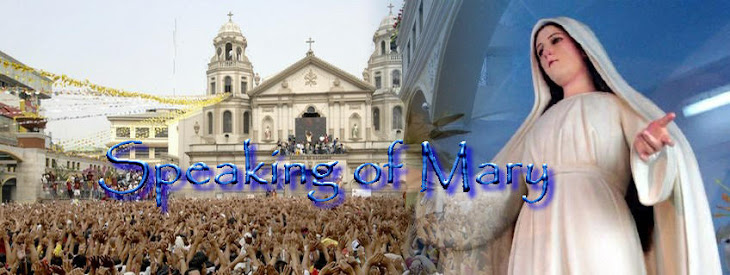DEATH and tragedy seems to be the order of the year. If we were superstitious, the recent calamity in Haiti bodes ill for the entire year. But as believers and followers of Christ, no gravity of tragedy or senselessness of death can separate us from Him who is the source of all happiness and grace.
The tsunami in the Indian Ocean, the floods in Southeast Asia, the devastating earthquake in the Caribbean—all these natural phenomena make us think twice not only of how volatile human life is on the face of the earth but more importantly, these make us look, no, search for a somehow higher power and being.
And in this seeming despair, when somehow we are cornered either to lose hope or grasp the idea of any higher good, it is then that we have to “invent” the idea of God. To comfort ourselves perhaps or to console our weary and tired hearts?
Perhaps. Who then is God? Are we no different from our ancestors that when they were confronted with unexplainable phenomena of nature, they simply turned to nature and adore it as god? Perhaps we have just gone more articulate, more sophisticated in our verbosity yet essentially re-inventing the same old idea that since we cannot explain it, let’s call it “god,” and adore it and attribute to it anything and everything that will make our lives on earth more bearable and palatable.
Quite tempting isn’t it? It’s easier to be “philosophical” rather than to be “dogmatic” about things. It’s a lot easier to ask and doubt rather than ask and search, for when we eventually find what or who we seek, there are no excuses not to believe in nor give our commitment to that discovered truth.
And so alas, in the tragedies of this passing world, are we to discover God? And insist that God does not turn a blind eye when His people suffer? Or are we to follow the other extreme and think that indeed this world is left to its own, and that we are to tend to ourselves with only ourselves to help us? Or to consider even that it is just senseless to think more than what we see and experience, that these are tragedies and that is all, no deeper explanations, no deeper sense, no higher meaning, and no higher Being to speak of?
Last Christmas Season, I had the grace to stay at the bedside of a dying man. He was rich and powerful. I thought for a while that death was a great equalizer between the poor and the rich, the weak and the mighty. That since death is inescapable, at least in death, we are all equal.
Yet I was deeply wrong. I saw this man, in the utter weakness of his mind and body, drew strength from God and from Our Lady. In his last evening of earthly life, he exhorted us to pray the Holy Rosary. Upon reaching the Fourth Sorrowful Mystery, he summoned any strength that was left of him and led the praying of the decade, and with fifth Hail Mary, he begun to sing the prayer.
Sickness and death are not the great equalizer, God’s grace is. Conversion is for everyone, the mighty and weak, wealthy and the pauper.
Gathered together around him the next day, we sung the Hail Mary, with the repetition of this Marian hymn, he breathed his last. With the statue of Our Lady, Mary, Mediatrix of All-Grace guarding him in deathbed, it was the true Lady who accompanied him to his heavenly home.
Tragedies do not equalize us. The grace of God does. God’s love does.
St. Augustine has these beautiful words to say:
Great are You, O Lord, and greatly to be praised; great is Your power, and of Your wisdom there is no end. And man, being a part of Your creation, desires to praise You, man, who bears about with him his mortality, the witness of his sin, even the witness that You resist the proud, — yet man, this part of Your creation, desires to praise You. You move us to delight in praising You; for You have formed us for Yourself, and our hearts are restless till they find rest in You…
And those who seek the Lord shall praise Him. For those who seek shall find Him, Matthew 7:7 and those who find Him shall praise Him. Let me seek You, Lord, in calling on You, and call on You in believing in You; for You have been preached unto us. O Lord, my faith calls on You—that faith which You have imparted to me, which You have breathed into me through the incarnation of Your Son, through the ministry of Your preacher.
Faced with life and eventually death, the Prayer of the Church solemnly assures us, for God’s faithful people, life is changed, not ended. Vita mutatur non tollitur.
Friday, January 15, 2010
Subscribe to:
Comments (Atom)

